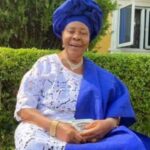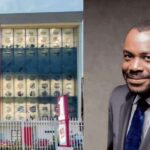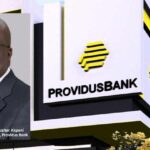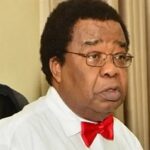Applying for a visa can be a milestone moment for many, often accompanied by a significant amount of nervous energy. The visa interview is a crucial step in the application process, as it determines the success of one’s application. Understandably, applicants might experience jitters as the weight of the occasion bears down.
However, with proper preparation, individuals can approach their visa interviews with confidence, ensuring they leave a positive impression on their interviewers.
Preparation is key to navigating the visa application process effectively. Applicants are advised to familiarize themselves with potential interview questions, prepare all necessary documents, and conduct mock interviews to sharpen their responses.
Gaining a firm grasp of the interview process helps demystify it, transforming nervousness into confidence. It is important to convey honesty and clarity when answering questions, as this signals reliability and trustworthiness to the interviewer.
To make a positive impression, applicants should focus on clear communication, maintaining eye contact, and dressing appropriately for the interview. These elements, combined with thorough preparation, not only mitigate anxiety but also contribute to the overall presentation of the candidate.
Having a calm and prepared demeanor can resonate with the interviewer, highlighting the applicant’s readiness and seriousness regarding their visa request.
Getting Your Documents in Order
Proper preparation of one’s documentation is a vital step in the visa application process. Ensuring all documents are complete, current, and well-organized can significantly influence the outcome of the visa interview.
Understanding Visa Requirements
Each country and visa category comes with specific requirements that must be meticulously followed. Applicants should visit the embassy or consulate’s official website to obtain a comprehensive list of required documents for their particular visa type.
It is important to note that these requirements can vary based on the visa category, such as tourist, business, or student visas.
Gathering Necessary Documents
The following table outlines the basic set of necessary documents that applicants must compile for the visa application process:
| Document Type | Description |
|---|---|
| Passport | Must be valid for at least six months beyond the planned stay. |
| Application Form | Fully completed and signed application specific to the visa category. |
| Financial Documents | Bank statements or other proofs of financial stability to cover the trip. |
| Supporting Documents | Employment letters, itinerary, reservations, or invitation letters as required by the visa category. |
Applicants should gather original documents and make sufficient copies. If additional supporting documents are needed, applicants may be required to present evidence such as marriage certificates, academic transcripts, or letters of sponsorship, depending on the visa category.
Organizing Your Documentation
Documentation should be organized in a logical sequence. It is advisable to sort documents in the order they are likely to be requested during the interview:
- Passport at the top for immediate access.
- Visa application form followed by any appointment confirmations.
- Financial documents, proving the applicant’s ability to fund the visit.
- Supporting documents relevant to the purpose of travel, organized by category.
Documents should be kept in a clean, presentable folder or file for easy retrieval during the interview. Each applicant’s situation is unique, so it’s important to adapt the document organization to the specifics of their individual application.
Mastering the Interview Preparation
Proper preparation can significantly reduce interview jitters and equip applicants with the confidence to make a positive impression. In-depth preparation, structured practice, and familiarity with potential interview scenarios lay a foundation for success.
Researching Common Interview Questions
Applicants should begin by compiling a list of common visa interview questions. They can categorize these questions into themes such as travel plans, financial status, and ties to the home country.
Researching and understanding the purpose behind these questions will help applicants craft clear and concise answers.
- Travel Plans: What is the purpose of your visit?
- Financial Status: How will you finance your trip?
- Home Country Ties: What ties you to your home country?
Practicing Effective Communication
Effective communication involves more than just providing the correct answers. It is essential for applicants to practice their delivery.
This includes speaking clearly, maintaining eye contact, and being mindful of their body language. They should also ensure their answers are not only honest but articulated in a confident and direct manner.
- Key Communication Practices:
- Speak clearly and concisely
- Maintain eye contact
- Use positive body language
Scheduling a Mock Interview
A mock interview provides a rehearsal space for applicants to test their preparedness. It’s an opportunity to receive feedback on their answers and communication style.
Applicants should treat this practice as if it were the real interview, dressing appropriately and engaging with the process earnestly.
This step is essential in refining their answers and boosting their poise.
- Mock Interview Focus:
- Answer clarity: Ensuring responses are easily understood
- Composure: Maintaining calm and confidence under questioning
- Feedback integration: Using insights gained to improve performance
Presentation Tips for Success
High-quality presentation can significantly influence the outcome of a visa application interview. This section covers key aspects such as dressing appropriately, maintaining a professional demeanor, and understanding body language to ensure you make a positive impression.
Dressing for a Positive Impact
When attending a visa interview, dressing professionally is crucial. Men and women should select attire that aligns with the dress code typically expected in a business environment.
For men, this could involve a suit and tie or at least business casual attire such as a button-up shirt and dress pants. Women should opt for a conservative dress, skirt and blouse, or a business suit.
Clothes should be clean, neatly pressed, and fit well. Professional grooming is equally important; hair should be tidy, and any accessories should be understated.
Maintaining Professional Demeanor
Maintaining a professional demeanor is about behavior and attitude during the interview.
Applicants should ensure they speak clearly and stay on topic. Responses should be concise and relevant.
A respectful attitude is displayed through polite language and a willingness to listen. Demonstrating patience and not interrupting the interviewer are also indicators of a professional demeanor.
It is important to address any questions with honesty and clarity.
Understanding the Importance of Body Language
Body language can communicate confidence and respect. Applicants should be mindful of their posture, sitting up straight and avoiding slouching.
Eye contact is another essential aspect of body language; it conveys attentiveness and honesty. However, it should be natural and not overly intense.
Subtle gestures, like nodding when in agreement, can show engagement, but fidgeting or overuse of hand movements can be distracting. A firm handshake at the beginning and end of the interview also leaves a lasting positive impression.
Attitude and Behavior During the Interview
A successful visa application interview hinges on demonstrating confidence, honesty, and respectful behavior. Punctuality and thorough preparation are also crucial to make a positive impression.
Displaying Confidence and Calmness
Candidates should focus on maintaining eye contact and speaking clearly to convey confidence.
Deep breathing techniques can be utilized to manage nerves and stay calm. It’s important to sit up straight, smile, and use measured gestures to present a positive attitude.
Being Honest and Respectful
Applicants must answer all questions truthfully, as honesty reflects integrity.
Politeness in interactions shows respect for the interviewer. Use formal language and address the interviewer by their correct title to maintain a tone of respect.
Staying Punctual and Prepared
Arriving on time is a key aspect of punctuality. Applicants should aim to arrive at least 15 minutes early to demonstrate seriousness about the process.
Being well-prepared is also important. Having the necessary documents organized in a folder can help applicants present themselves as methodical and reliable.





